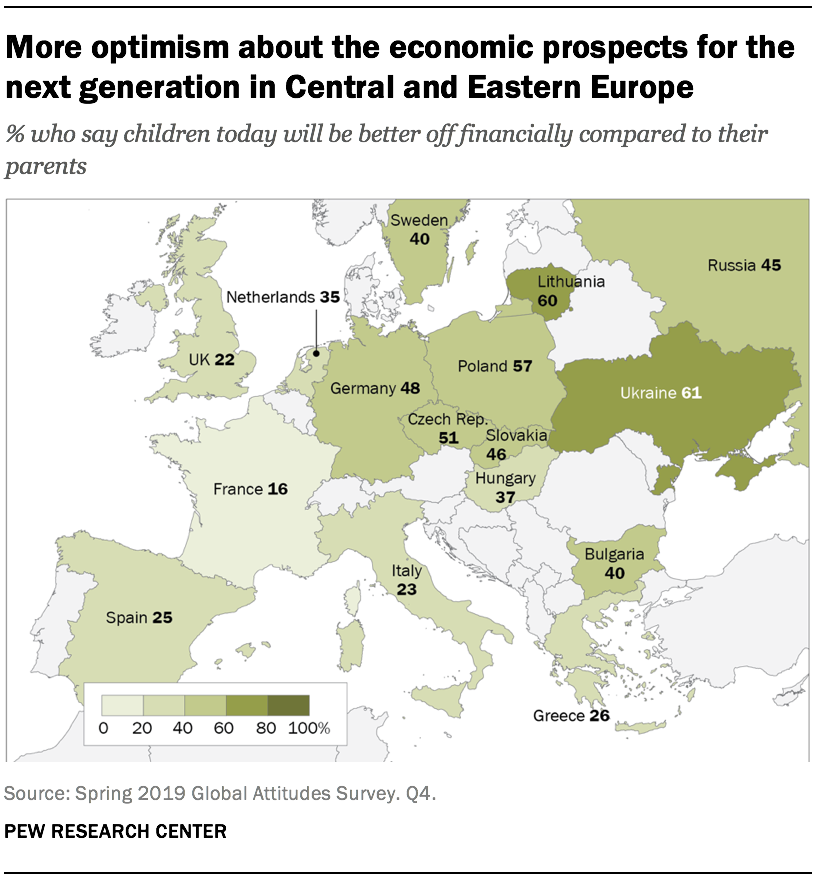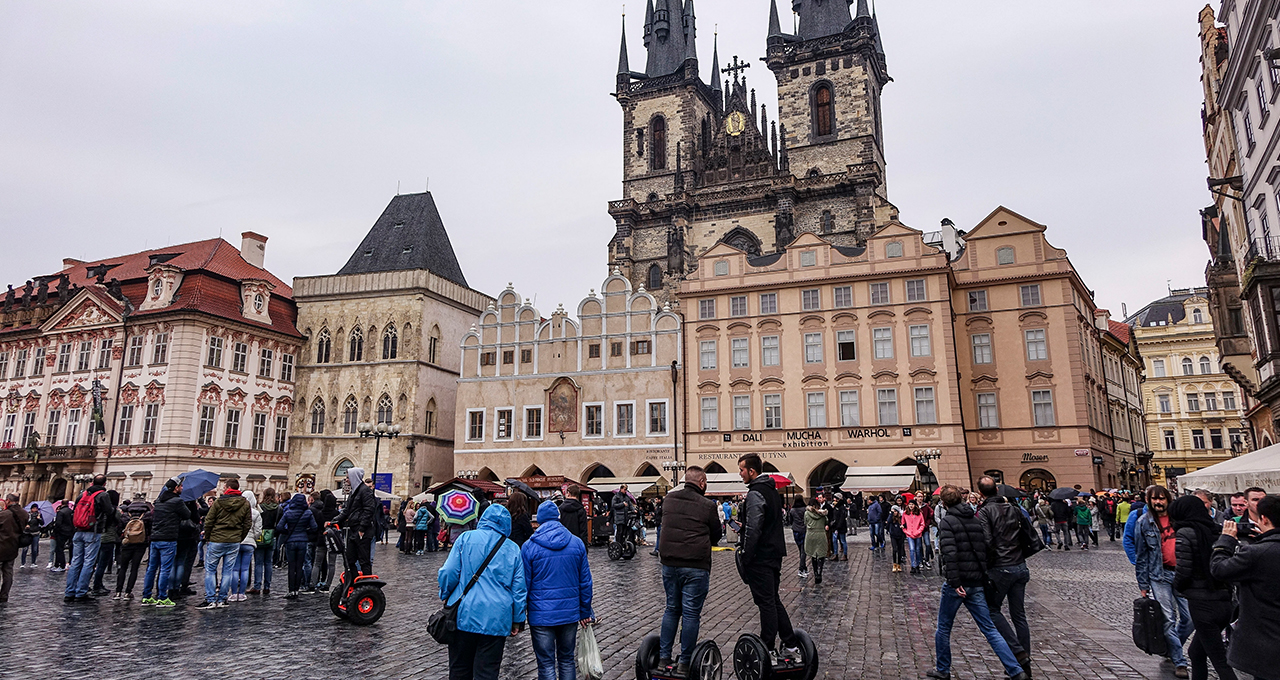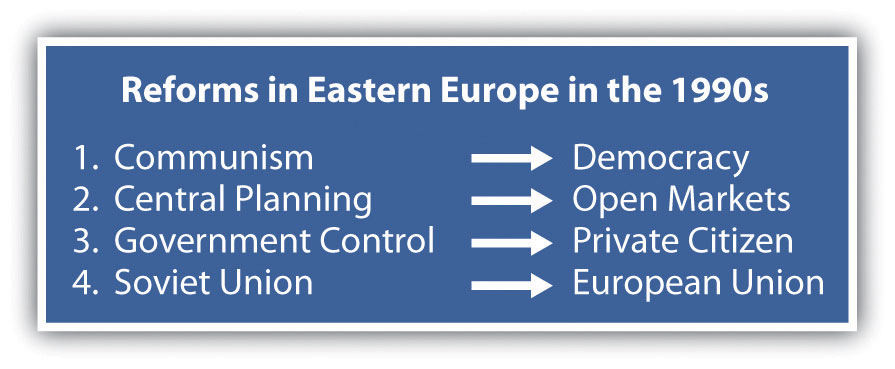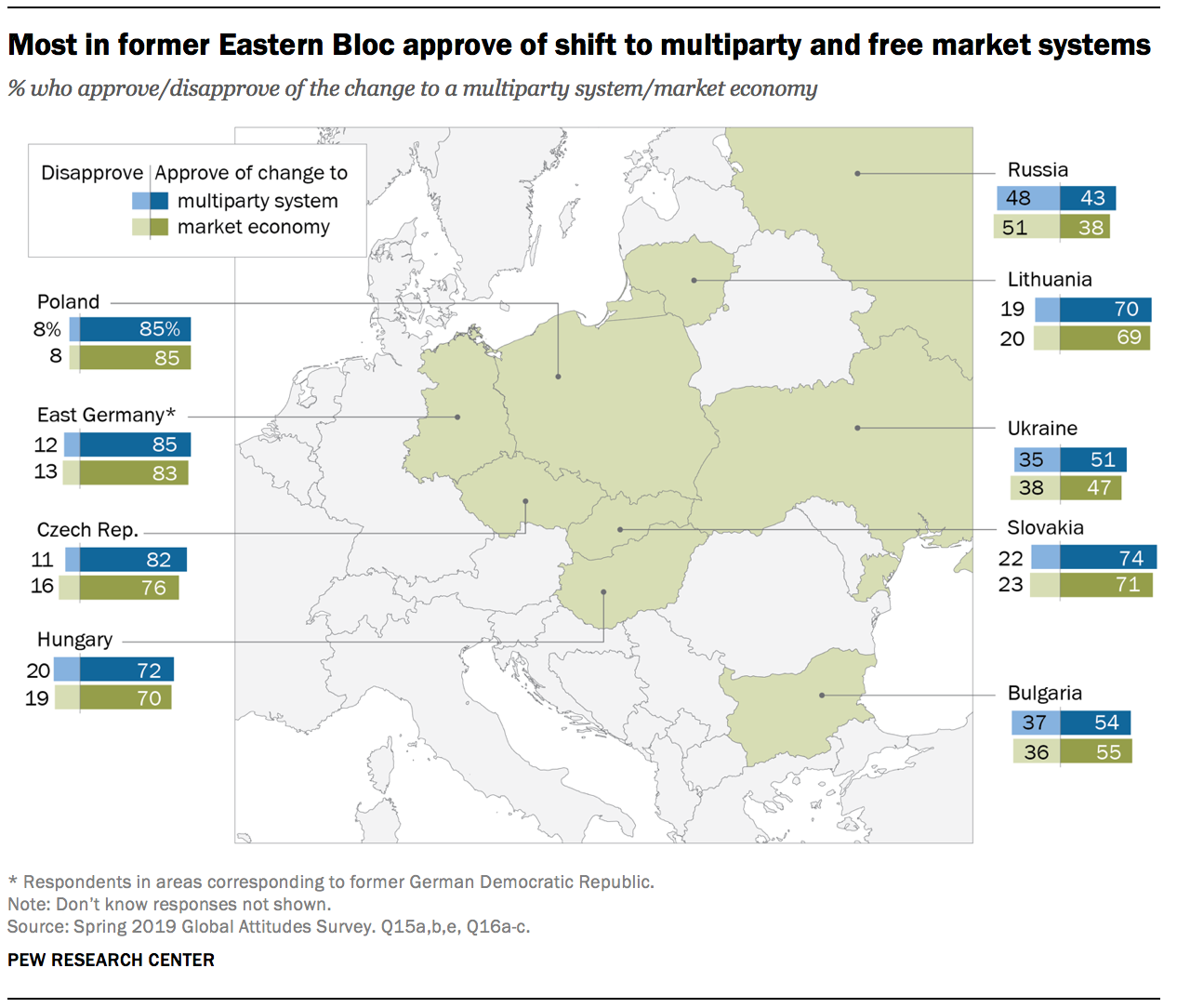All of these are examples of situations where differences. In todays society we are constantly reminded that conflicts based on cultural differences are universal.

Public Opinion In Europe 30 Years After The Fall Of Communism Pew Research Center
Earlier that day the Communist authorities of the German Democratic Republic had announced the removal of travel restrictions to democratic West Berlin.

. I remember watching the TV while the announcement was made that Britain voted for the Brexit move and I. An estimated 60 million people were killed in the conflict. Roma are a people and culture native to central and eastern Europe.
There are various definitions of Europe and in particular there is a significant dispute about the. Elsewhere Pew Research Center has documented the wide range of public reactions to political and economic change between 1991 and 2009. The Soviet Union reacted differently to events in Poland Hungary and Berlin due to domestic pressures and.
Soviet Domination of Eastern Europe. Conflict seems to be everywhere. Public memory¹ Some commentators have suggested that the Cold Wars conclusion marked the end if not of history then at least of the memory regimes that had emerged in East and West Germany² The implication is that.
Many countries in Eastern Europe have also rejected the multicultural dogma and as a result they have less. How has culture affected the daily life and behavior of the individual in particular and in the society in general. Its not unrealistic at all and there are many free countries who make a point of maintaining their homogeneity not just dictatorships like North Korea several other countries in Asia are pretty much homogeneous such as Japan South Korea Taiwan etc.
The generals and the NKVD officers who came into the region were thinking they were pushing the boundaries of the socialist revolution and that it was only a matter of time before they moved from. An ethnic conflict is a conflict between two or more contending ethnic groups. In the face of an economic crisis EU citizens of poorer member countries such as the Roma of Bulgaria and Romania often migrate to more developed EU countries in search of work.
It has been the subject of argument without end for hundreds of years. European society and culture since 1914. The Romantics who studied society through the novel or discoursed about it in essays and pamphlets were no less devoted to this cause of humanity but they arrived at politically different conclusions from Goethes and from one anothers.
Developed countries however are also facing economic challenges. Following the fall of the Iron Curtain and collapse of the USSR Western models of democratic government and market economies quickly spread across Central and Eastern Europe. Hungarian political scientist Laszlo Urban has pointed out that liberal parties have done well recently outside the.
While the source of the conflict may be political social economic or religious the individuals in conflict must expressly fight for their ethnic groups position within society. In World War II Germany brought immeasurable suffering and destruction to the whole of Europe. The 1950s brought a desire for reform in Eastern Europe.
This criterion differentiates ethnic conflict from other forms of struggle. Eastern Europe can largely be identified by the sway of the Orthodox church. Brexits cross-cultural conflict and its Effect on Europe.
In the West on the other hand it is suggested that in a Post-modern world ethnicity is the new form on social bonding and that this has nothing to do with the traditional concepts used in the study of class conflict and social stratification. Thousands of East Germans streamed into the West and in the course. But equally rapid change is the hallmark of many aspects of life since 1914 and nowhere has it been more apparent than in Europe.
Early 19th-century social and political thought. First reported in or about 1950 the saying neatly expressed that periods sense of the headlong speed at which technology was changing. On the night of November 9 1989 the Berlin Wallthe most potent symbol of the cold-war division of Europecame down.
Culture affects life and also behavior by. In the 16th and 17th century there were furious debates over the best way to protect Protestantism and parliamentary freedoms. An apartment complex in the eastern Ukraine town of Chuguiv was hit in an airstrike on Feb.
Explore the state of Eastern. Brexit was a huge event that impacted not only Britain but several others countries like Germany Italy France and a few others. Chapter 23 Lesson 3.
German guilt for Europes suffering. Cross-culture conflict seems the perfect way to describe to the Brexit event. If it works its obsolete.
Politico-religious radicalisation where inspiration is grounded in Islamic texts or interpretations that. Ethnic nationalism has come in to fill the vacuum. During the second half of the twentieth century the Soviet Union dominated Eastern Europe.
Just as in that study the new survey. From Black Lives Matter the Confederate statue encounters the TimesUp movement even not-so-politically-correct statements from our own leaders. The paper distinguishes between three broad categories of tension and violence.
This is a list of conflicts in Europe ordered chronologically including wars between European states civil wars within European states wars between a European state and a non-European state that took place within Europe and global conflicts in which Europe was a theatre of war. Extensive research has demonstrated that the Cold War had a decisive impact on a central element of postwar German culture and political culture. Scott and Disraeli were forerunners of Tory.
Bloomberg Economics examines how the conflict could impact growth inflation and monetary policy.

2 4 Eastern Europe World Regional Geography

Public Opinion In Europe 30 Years After The Fall Of Communism Pew Research Center

Public Opinion In Europe 30 Years After The Fall Of Communism Pew Research Center

Soviet Domination Of Eastern Europe Video Lesson Transcript Study Com
0 Comments